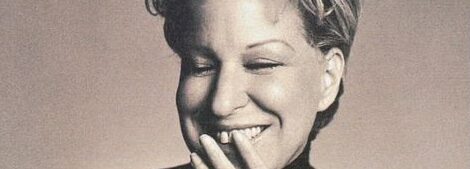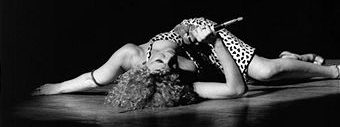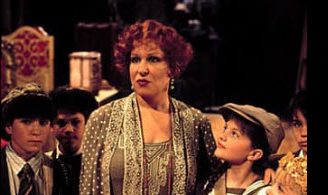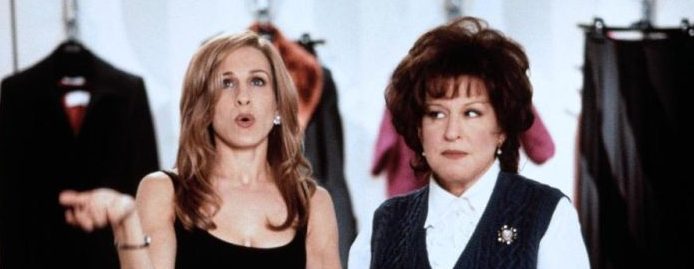Backstage
What Is Black Comedy? 9 Movies That Define the Darkly Funny Genre
BY GREGORY LAWRENCE
JUNE 3, 2024
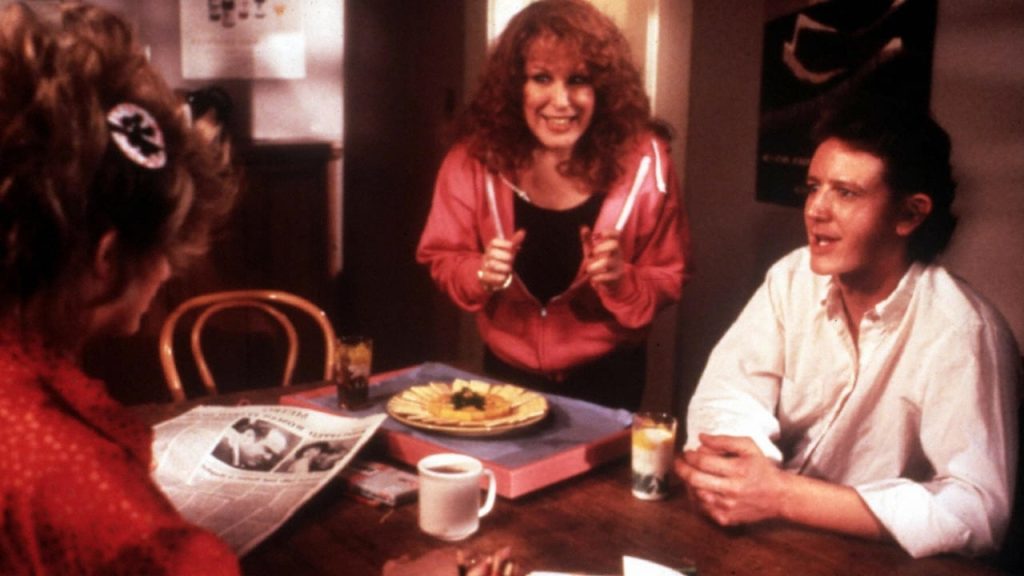
Laughter is the best medicine, an escape route from our problems. But what happens when that medicine is laced with poison, the laughter mixed with gasps, and the escape route leads directly to a pit of spikes?
You might be dealing with a black comedy, a genre that refuses to look away from the darkness of life, instead zooming in on the material for its uneasy chuckles. If you’re interested in walking this tricky tightrope, here are some essential elements and examples from film history.
What is black comedy?
Black comedy mines difficult or upsetting topics for satirization, provocation, and laughter—the kind you can’t believe is leaving your mouth. These subjects range from experiences humans consider dark (like death) to experiences humans consider socially taboo (like sexual deviance).
The term comes from French writer André Breton in his aptly titled 1940 “Anthology of Black Humor” (or as he called it, “l’humour noir”). Breton calls 18th-century writer Jonathan Swift the originator of the genre. For example, Swift wrote a satirical essay called “A Modest Proposal,” in which he suggests, seemingly logically, that poor Irish people should sell their babies as food to the ruling class.
Slavery, exploitation, cannibalism—all involving babies? To this day, “A Modest Proposal” dives headfirst into some bleakest material imaginable. However, Swift is not interested merely in horror or shock (though those emotions often go part and parcel with the genre). Instead, Swift does it all to make a point about humanity’s more prickly, icky elements and what can happen if we let these impulses and rationalizations go unchecked. So, too, do contemporary black-comedy filmmakers.
Characteristics of black comedy
Beyond the aforementioned use of grim, “forbidden” premises as material, black comedies often have the following themes and impulses in mind.
Very bad people
A traditional film follows a protagonist we like achieving goals we understand; a hero, if you will. In black comedy, this is generally not the case. The main characters exist on a morality spectrum from flawed to aggressively detestable. Their goals are vicious and vile, positioned well beyond understandable, palatable wants and desires. Sometimes, we’re asked merely to observe these people without inhabiting a traditional audience-protagonist relationship. But sometimes, a film wants us to actively empathize with what could commonly be called a monster, creating juicy friction within the film and outside it.
Absurdity and existentialism
Black comedies often veer into the outrageous or exaggerated poles of the human experience, but they typically do not evoke the strong emotional responses you might expect. Rather, these situations—often with literal life-or-death stakes—happen with a matter-of-fact abruptness. They’re logistical hurdles rather than heartbreaking blows.
In black comedy, the specter of death lurks in the shadows; with such a pervasive threat, there is simply no room to deal with it other than with familiarity. This element is indicative of absurdism or existentialism, modes of philosophy predicated on the finality of death, rendering all other human happenings meaningless. From that point of view, what else can you do but laugh?
Catharsis without catharsis
Beloved children’s entertainer Mister Rogers said, “Anything human is mentionable, and anything mentionable can be more manageable.” Well, black comedies mention it all, and then some.
Any topic considered verboten at the dinner table—plus any topic 12 times weirder and darker than those—are the meat and potatoes of a black comedy film. And as Mister Rogers posited, this can provide a bit of release for an audience. We spend so much time being told not to think about or act on certain things that we can cause them to balloon up and fester in our souls. By dealing with them in the safe confines of a movie, we puncture a small hole in the balloon and take away some of its power.
However, these characters rarely achieve the dramatic catharsis typically offered to a protagonist. More often than not, the universe swallows them whole, concluding on an authentically cynical authorial statement about how the world works. So, as the audience feels a little better, the character feels a lot worse. How’s that for some black comedy?
BLACK COMEDY MOVIES
“Arsenic and Old Lace” (1944)
Based on an acclaimed play, Frank Capra’s film features two doddering elderly ladies (Josephine Hull and Jean Adair) with a peculiar hobby—poisoning visitors and burying the corpses on their property. When their nephew Mortimer (Cary Grant) brings home his new wife Elaine (Priscilla Lane), the couple inadvertently discovers one of the bodies, prompting chaos, confusion, and comedy. The film balances its murder-based goofs with farcical performances and off-kilter blocking choices, making it feel even queasier.
“Monsieur Verdoux” (1947)
Charlie Chaplin, the silent era star best known as the lovable Little Tramp character, twists his onscreen image to savage ends in “Monsieur Verdoux.” Written and directed by Chaplin, the actor plays a con man who marries multiple wealthy women at once and then murders them to inherit their fortunes. The character’s climactic speech at his trial not only shoves the knife deeper but clarifies some of the societal, satirical functions of black humor:
“As for being a mass killer, does not the world encourage it? Is it not building weapons of destruction for the sole purpose of mass killing? Has it not blown unsuspecting women and little children to pieces, and done it very scientifically? As a mass killer, I am an amateur by comparison.”
“The Ladykillers” (1955)
A film rife with grotesque cynicism, Alexander Mackendrick’s “The Ladykillers” stars Alec Guinness as the head of a criminal gang determined to kill their little old landlady, Louisa Wilberforce (Katie Johnson), when she starts to suspect their wrongdoings. From there, we plunge headfirst into an eddy of ill intent and abject stupidity, where human bodies are discarded as quickly as ideas. Johnson’s Wilberforce serves as a conscience, highlighting the crooks’ behavior as even more abhorrent.
“Dr. Strangelove or: How I Learned to Stop Worrying and Love the Bomb” (1964)
Is nuclear war funny? Director Stanley Kubrick, star Peter Sellers, and the rest of the unimpeachable team behind “Dr. Strangelove” find an affirmative answer in this paranoid fever dream. Brutally satirical, the film raises genuinely disquieting questions like, “What if the leaders responsible for world-ending weapons are unstable morons?” It then asks us to laugh on the bomb ride down.
“Harold and Maude” (1971)
In this countercultural classic directed by Hal Ashby, the title characters are fixated with death—young Harold (Bud Cort) out of personal obsession and elderly Maude (Ruth Gordon) because it’s coming for her soon. The relationship the pair undertakes is equal parts disturbing and touching; its conclusions, depending on your interpretation, are borderline irresponsible.
“Ruthless People” (1986)
Danny DeVito stars alongside Bette Midler in this vicious explosion of marital unrest that leads to criminal schemes and murder. The plot machinations are grim enough, but the film’s darkness truly comes from the character’s interior malevolence toward each other. It’s an ugly comedy in the best way possible.
“Heathers” (1989)
So influential it’s been adapted into both a musical and a TV series, Michael Lehmann’s “Heathers” puts two high school students, Veronica (Winona Ryder) and Jason (Christian Slater), at the center of a plot involving mass murder, suicide, and explorations of homophobia. It’s particularly transgressive to explore these subjects through the vessel of a high school comedy—especially at the tail end of an era ruled by the hopefulness of John Hughes movies—but there’s an offbeat relatability for anyone who remembers being young.
“Happiness” (1998)
An ironic title, to be clear. Todd Solondz’s “Happiness” concerns miserable people, including literal rapists and pedophiles, wallowing in their own psychosexual filth. Maybe the most purely shocking film on this list, “Happiness” is incisive and undeniably compelling for anyone who dares brave it.
“Burn After Reading” (2008)
The Coen Brothers are masters of black humor, often adding a dash to any genre they’re working in. But “Burn After Reading” may be their most bleakly funny creation. It’s a fast-paced, aggressively performed depiction of bug-nuts idiots who betray and kill each other over misplaced theories. The ending dialogue plays like a slap to the face, and you will ask for another.

